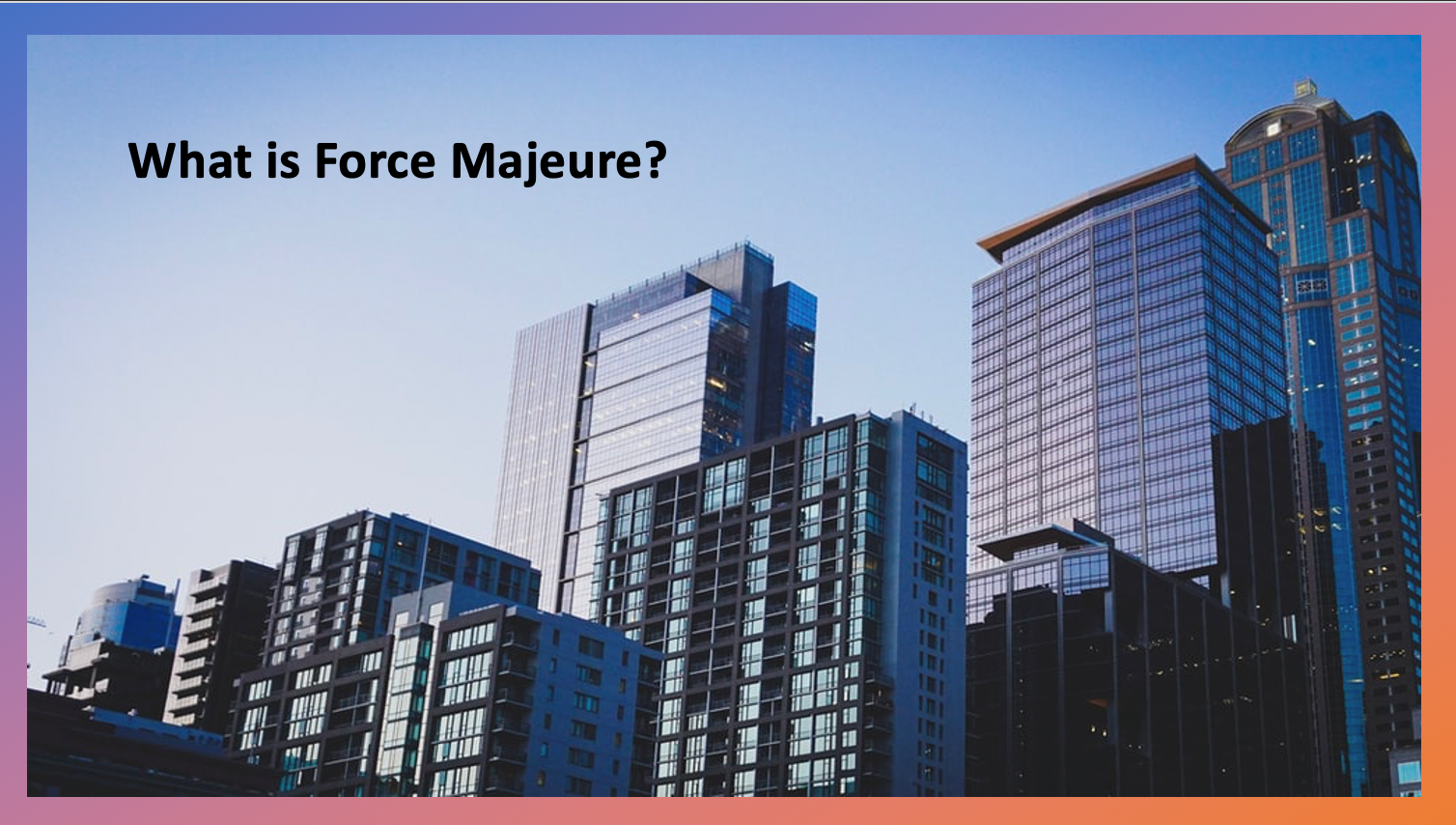ALL ABOUT FORCE MAJEURE

Force Majeure means “superior force” and refers to an unexpected event that prevents a party from fulfilling its legal obligations under a contract. In real estate, force majeure clauses are common.
This clause attempts to address whether parties are still responsible for fulfilling their end of the contract when unexpected situations like war, crime, strike, and “Acts of God” occur.
When one of these events takes place during the term and either party cites the Force Majeure clause to explain their inability to hold up their end of the deal, there is then a legal test that identifies whether the claim is valid.
This is an important topic especially in the light of COVID 19. You may have heard or participated in discussions about Force Majeure and whether COVID counts as a situation in which this clause would be consulted. Whether COVID counts as a Force Majeure event or not has a large impact on landlords and small businesses and we will discuss that in this article.
How does the court determine Force Majeure?
Because determining the validity of a Force Majeure claim can be subjective, there are a couple of questions the court may consider:
Was the event within the contemplation of the parties at the time the contract was made?
Was the event beyond reasonable control of the affected party?
Was the affected party’s ability to perform its obligations prevented by the event?
Could the event have been reasonably foreseen by both parties?
Did the affected party take all reasonable precautions to avoid the event or mitigate its consequences?
Courts will approach each of these questions to determine whether a Force Majeure claim is valid or not.
What happens if the court rules a Force Majeure event has occurred?
There are two contractual relief options:
Temporary suspension of contractual performance. This relief lasts as long as the event and then contractual obligations resume once the event is resolved.
Cancellation of the contract. This relief is reserved for events with an uncertain end.
How does the Force Majeure clause hold up in light of COVID 19?
While there are situations where tenants can claim Force Majeure, this clause does not address all tenant default issues during the pandemic. For example, if a tenant failed to pay rent before states ordered closures, in most cases the party would still be responsible.
However, after local governments instilled stay-at-home orders, force majeure forgave portions of rent. Of course, this depends on several factors and thus varies from specific case to case. The court ruling depends on the state, timing, local government rules, and many other factors. Therefore, to be sure we suggest you go over your contract with a commercial real estate lawyer and your commercial real estate agent.
It’s interesting to watch how something as unexpected and effective as a global pandemic can have an effect on the way tenants and landlords operate. The strange circumstances we have been in for the past year and are finally climbing out of, provides us an opportunity to become familiar with the Force Majeure clause in a contract, and now in the future, you know what it is and what it could mean in the time of an emergency.
If you need help, understanding force majeure clauses on your contract, feel free to reach out to me @ 571-271-6604 or email deniz@mylocationadvisor.com.
